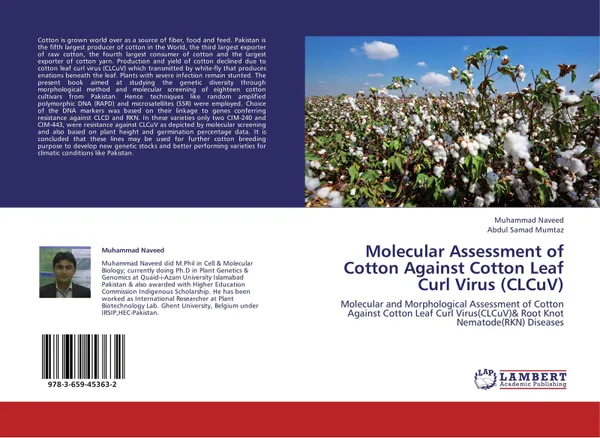Molecular Assessment of Cotton Against Cotton Leaf Curl Virus (CLCuV)
📘 Cotton is grown world over as a source of fiber, food and feed. Pakistan is the fifth largest producer of cotton in the World, the third largest exporter of raw cotton, the fourth largest consumer of cotton and the largest exporter of cotton yarn. Production and yield of cotton declined due to cotton leaf curl virus (CLCuV) which transmitted by white-fly that produces enations beneath the leaf. Plants with severe infection remain stunted. The present book aimed at studying the genetic diversity through morphological method and molecular screening of eighteen cotton cultivars from Pakistan. Hence techniques like random amplified polymorphic DNA (RAPD) and microsatellites (SSR) were employed. Choice of the DNA markers was based on their linkage to genes conferring resistance against CLCD and RKN. In these varieties only two CIM-240 and CIM-443, were resistance against CLCuV as depicted by molecular screening and also based on plant height and germination percentage data. It is concluded that these lines may be used for further cotton breeding purpose to develop new genetic stocks and better performing varieties for climatic conditions like Pakistan.
Мнения
